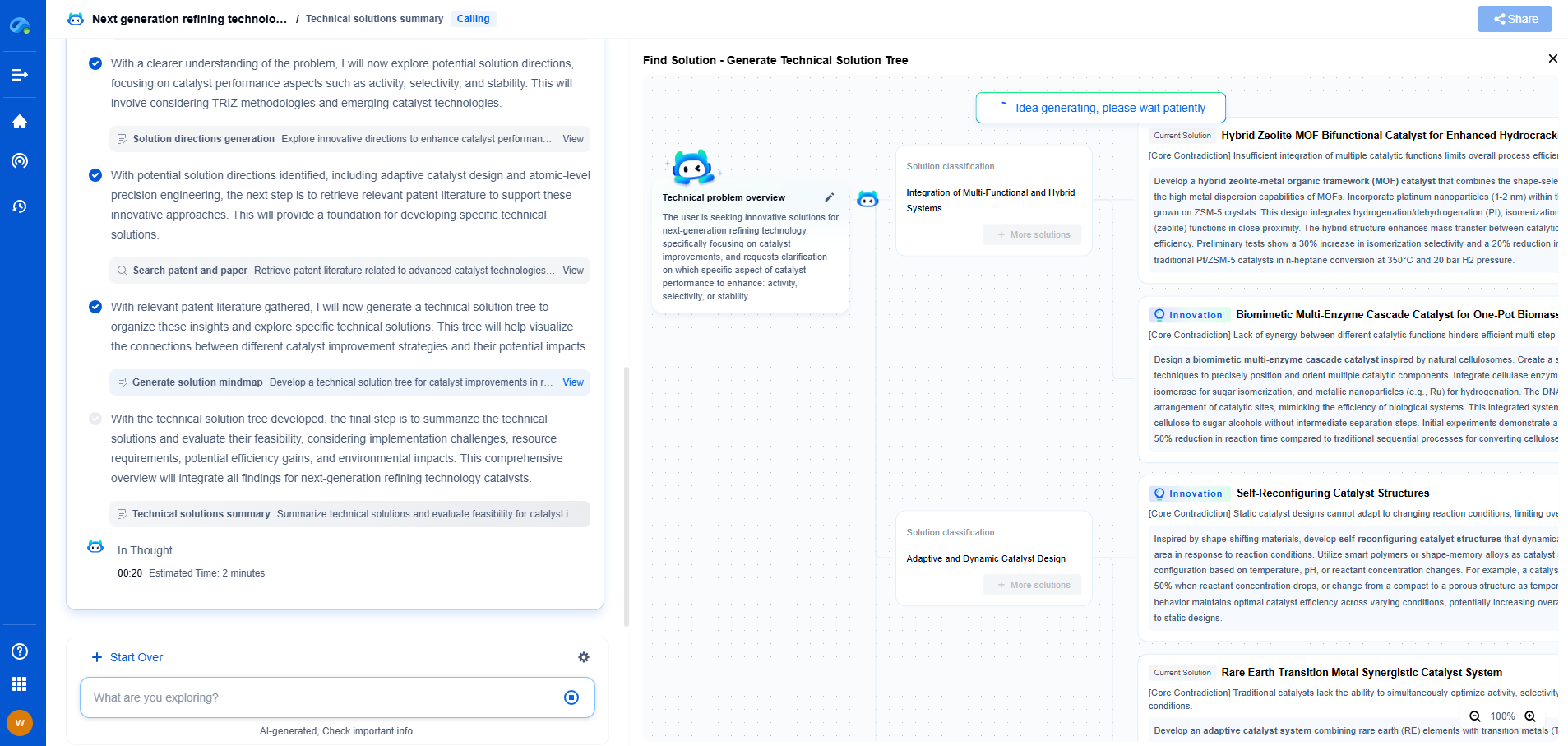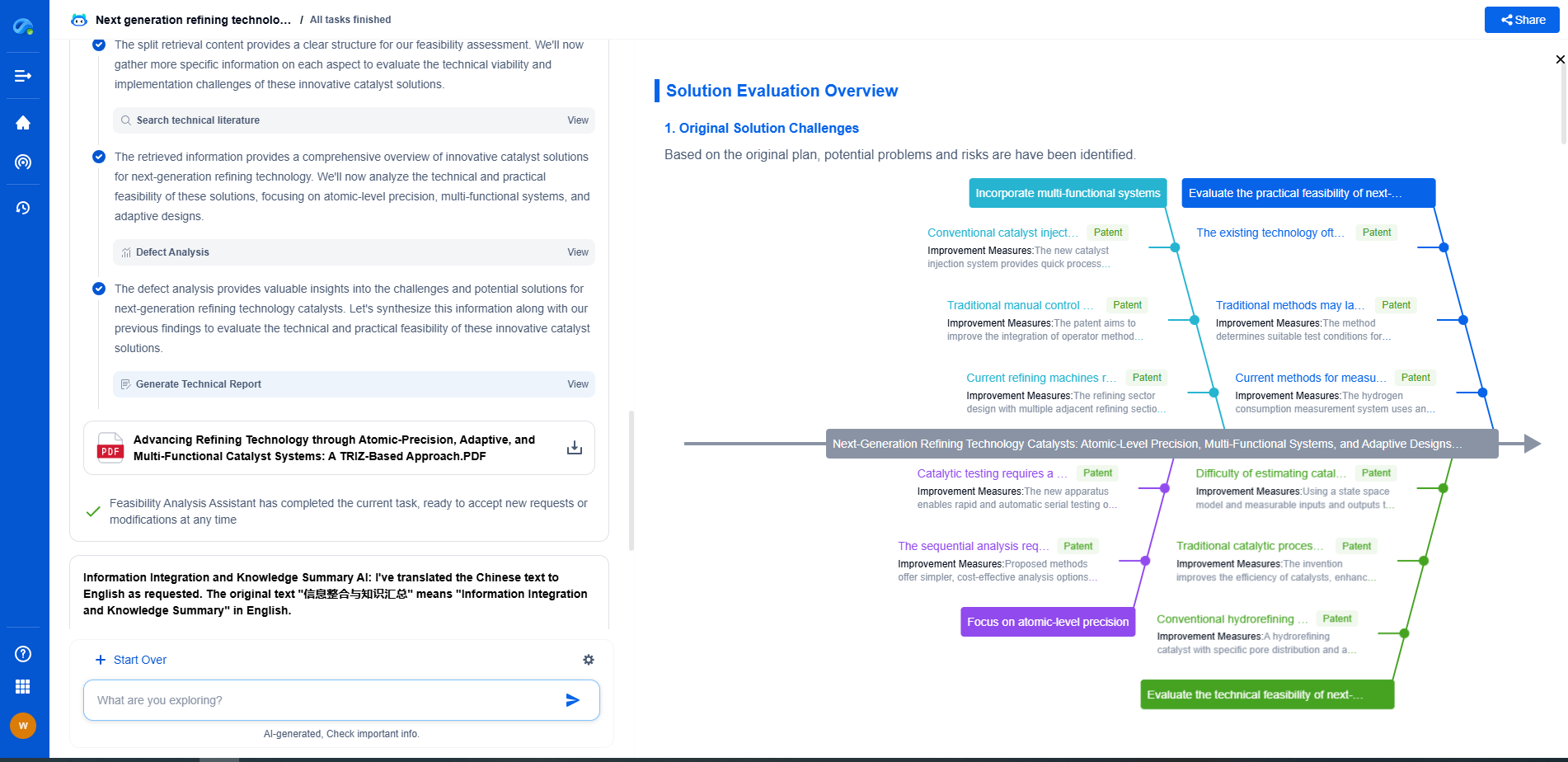Quantum Capacitors: Applications in Cryogenic Computing and Qubit Control
JUL 9, 2025 |
Quantum capacitors have begun to capture significant attention in the field of advanced computing technologies. As the demand for faster and more efficient computing systems grows, quantum technologies provide promising avenues for development. This article delves into the specific role of quantum capacitors within cryogenic computing environments and their critical applications in qubit control.
Understanding Quantum Capacitors
Quantum capacitors differ fundamentally from classical capacitors due to their reliance on quantum mechanical principles. In essence, a quantum capacitor's ability to store and release energy is governed by quantum effects, which can lead to unique operational characteristics. These capacitors are often integrated with materials exhibiting quantum properties, such as superconductors, to enhance their functionality at extremely low temperatures.
Applications in Cryogenic Computing
One of the primary domains where quantum capacitors are proving invaluable is cryogenic computing. Cryogenic computing involves operating computers at cryogenically low temperatures to exploit superconductivity and reduce thermal noise. Quantum capacitors are well-suited for these environments as they can maintain stable energy storage and transfer under such conditions.
The integration of quantum capacitors in cryogenic computing systems enhances performance by minimizing energy dissipation and improving coherence times. This is crucial for maintaining the integrity of quantum states, which is vital for efficient quantum computations. As cryogenic computing evolves, the role of quantum capacitors is expected to expand, supporting the development of more powerful and energy-efficient computing systems.
Role in Qubit Control
In the realm of quantum computing, qubits are the fundamental units of information. The precise control and manipulation of qubits are essential for the successful operation of quantum computers. Quantum capacitors aid in this process by providing controlled energy delivery and maintaining coherence in qubit systems.
Quantum capacitors can be employed in qubit control circuits to stabilize qubit states and reduce decoherence, thus improving the fidelity of quantum operations. Their unique ability to operate effectively at quantum levels of precision enhances the reliability and accuracy of quantum computations, addressing one of the most significant challenges in quantum computing today.
Advantages over Classical Capacitors
The unique properties of quantum capacitors offer distinct advantages over classical capacitors, particularly in quantum computing applications. The ability to operate at low temperatures without significant energy loss is a crucial advantage in cryogenic environments. Moreover, the quantum mechanical nature of these capacitors allows for greater precision in energy delivery and storage, which is essential for maintaining the delicate quantum states of qubits.
Additionally, quantum capacitors are inherently more adaptable to the needs of quantum circuits, allowing for more efficient integration with other quantum devices. This adaptability can lead to more compact and efficient quantum computing architectures, paving the way for scalable quantum computing solutions.
Challenges and Future Prospects
Despite their promising advantages, quantum capacitors face several challenges that need to be addressed to fully realize their potential. The fabrication of quantum capacitors involves complex processes and materials that must be refined for large-scale production. Furthermore, ensuring the stability and reliability of these capacitors in varied quantum computing environments remains a significant hurdle.
Nevertheless, advancements in material sciences and quantum technologies continue to drive progress in this field. As research and development efforts intensify, the future of quantum capacitors looks promising. They hold the potential to revolutionize quantum computing by enhancing cryogenic computing performance and enabling more precise qubit control.
Conclusion
Quantum capacitors are poised to play a crucial role in the evolution of quantum computing technologies. Their applications in cryogenic computing and qubit control highlight their potential to overcome some of the most significant challenges in the field. As these technologies continue to advance, quantum capacitors will undoubtedly be at the forefront of innovations that drive the next generation of computing systems. The journey towards fully realizing their capabilities is just beginning, and it promises exciting possibilities for the future of technology.
Looking to accelerate your capacitor innovation pipeline?
As capacitor technologies evolve—from miniaturized MLCCs for smartphones to grid-scale energy storage devices—so must the way your team accesses critical knowledge.
Patsnap Eureka, our intelligent AI assistant built for R&D professionals in high-tech sectors, empowers you with real-time expert-level analysis, technology roadmap exploration, and strategic mapping of core patents—all within a seamless, user-friendly interface.
Try Patsnap Eureka now and discover a faster, smarter way to research and innovate in capacitor technology.
- R&D
- Intellectual Property
- Life Sciences
- Materials
- Tech Scout
- Unparalleled Data Quality
- Higher Quality Content
- 60% Fewer Hallucinations
Browse by: Latest US Patents, China's latest patents, Technical Efficacy Thesaurus, Application Domain, Technology Topic, Popular Technical Reports.
© 2025 PatSnap. All rights reserved.Legal|Privacy policy|Modern Slavery Act Transparency Statement|Sitemap|About US| Contact US: help@patsnap.com

